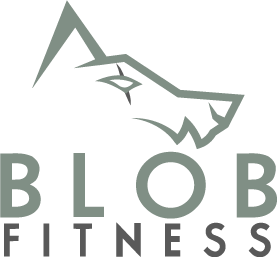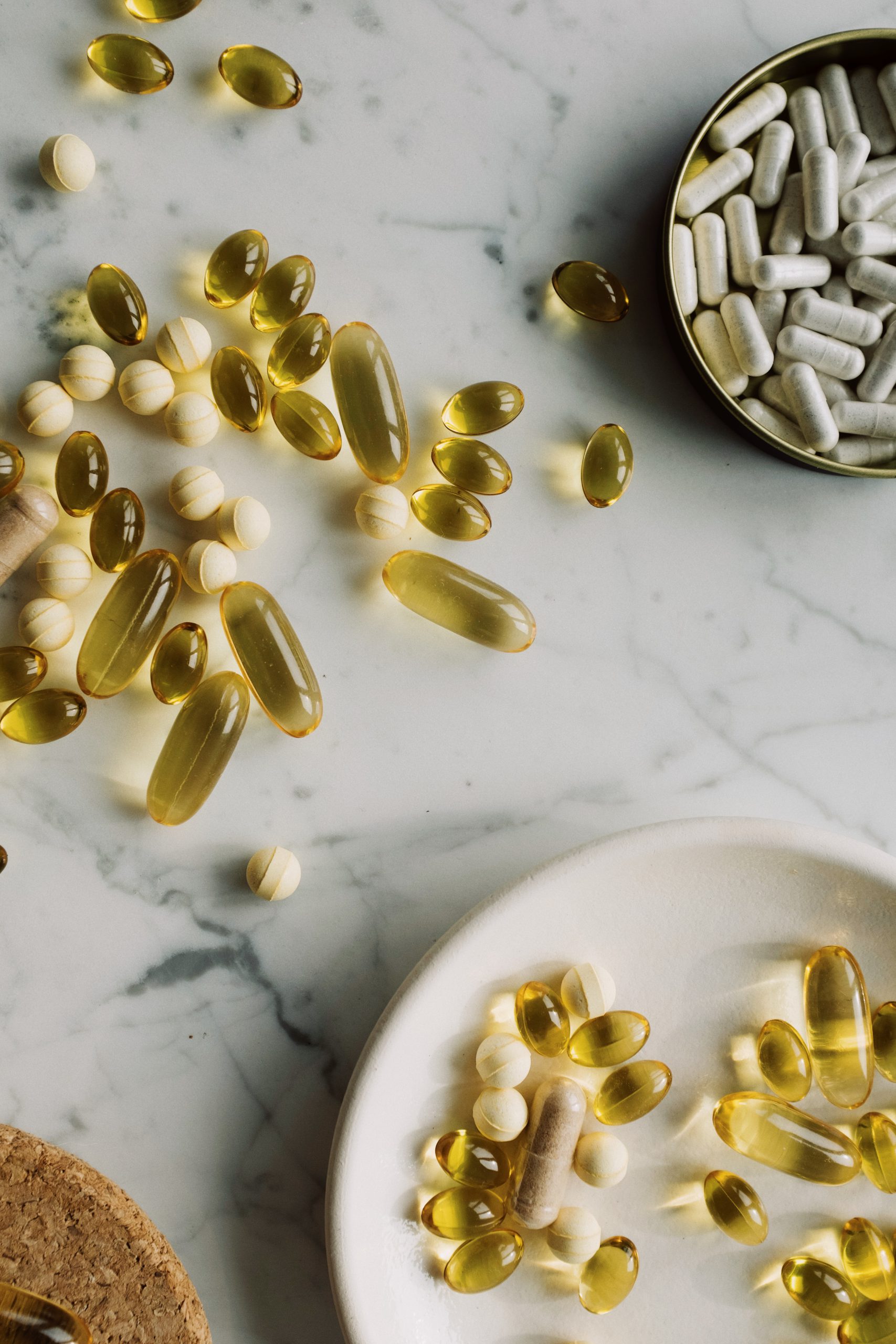Supplements vs Whole Foods, Does it Make a Difference?

Supplements vs Whole Foods, does it make a difference? Many people just throw down protein supplements or multivitamins in their daily diet.
Obviously, all things you get from supplements you can get from food though. Usually, we take supplements because maybe we don't like the food that it usually comes from or we just don't have enough time to eat that food. Do the pros of having whole foods though outweigh the pros of convenience of supplements though?
Pros of Taking Supplements
One of the main benefits of supplements is that it's convenient. You can take them at any time that benefits you and usually, you can get them in forms that taste better than the whole food.
Convenience
So if you're traveling to work or just getting out of the gym and you need to throw down a protein shake, that works perfectly for you. It's usually much easier to do something like that than take out a container of cooked chicken breast and eating it on the spot.
Isolation
Another plus to supplements it that you can isolate the things you need and take what's needed. For example, if you're deficient in vitamin D, you can easily just take a supplement for it without having to worry about eating foods that contain Vitamin D that can throw you over your caloric intake.
 Cons of Taking Supplements
Cons of Taking Supplements
You might think of things listed in the cons here would be artificial sweeteners. Which I do agree is a con, but I don't think they're so negative to have an overall negative impact on your health (unless it's paired with unhealthy weight and lifestyle) So we know that the main benefit of taking supplements is that it's convenient for use. So let's go on to some of the reasons why supplements aren't too great. So what's the real issue with supplements?
Too much of nothing
If you ever look in the back of your multivitamins, obviously there is plenty of vitamins in there. However, most of the vitamins that are in there you don't even really need, and the stuff you do need you probably need to supplement with for somewhere else.
For example, according to a 2011 study, 43% of Americans are vitamin D deficient (1). A great majority within the African American and Hispanic communities. However, if you're taking a multivitamin you're probably not getting the RDI (recommended daily intake). Even if you are, if you're deficient in vitamin D, you most likely need to take over the RDI to have normal levels of it.
Nutrients aren't Normally Paired Correctly
To piggyback off the example I used previously with vitamin D, let's say you are taking a vitamin D supplement or your multivitamin contains enough vitamin D to help you keep you in normal ranges.
Vitamin D in general needs plenty of other vitamins and micronutrients to work correctly. Vitamin D will deplete your magnesium levels faster than normal. You also need vitamin K2 for vitamin D to ensure calcium is absorbed optimally. However, you'll notice that your multivitamin most likely doesn't contain enough vitamin K2 or enough magnesium to help with this situation, so guess what? You need to start supplementing those too.
The main problem with supplements is that in a lot of cases, it leads to a domino effect (usually in a case if you're supplementing vitamins and micronutrients). You start supplementing and you'll realize whatever supplement you may be taking is missing X and then you go to supplement Y to realize supplement Y is missing Z and so on.
Pros of Eating Whole Foods
You're going to find here that most of the cons of supplementing are the pros of eating whole foods. However, let's go in more detail on what whole foods can provide.
Having a More Nutrient-Dense Diet
Having a nutrient-dense diet is one of your best options when taking foods into consideration. A Nutrient-dense diet is a diet that contains foods that are packed with nutrients.
Here is a small list of some foods that are considered nutrient-dense and why that is so:
- Salmon
- Packed with Omega-3s
- High Protein
- A good source of vitamin Bs, Magnesium, Vitamin D, Potassium
- Liver (Organ meats, in general, are some of the most nutrient-dense foods you can eat)
- High in Vitamin A, Vitamin Bs, Iron and Copper, Phosphorus, Riboflavin
- Good source of zinc and selenium
- Good source of protein
- Kale
- Packed with Vitamin C, Vitamin A, and Vitamin K1
- Good source of magnesium, copper, potassium
- Good source of fiber
- Nuts
- Great source of magnesium, iron, and potassium
- Healthy fats
- High in fiber
- Eggs (Mainly egg yolks)
- Great source of protein and healthy fats
- A decent source for vitamin K2
- Good source of vitamin D
- Spinach
- High in Vitamin A and Iron
- Good source of magnesium and potassium
With all that mentioned in the list, we didn't even cover all the other benefits those foods have but just some of the high nutrients they have. Mind you, there is plenty more nutrient-dense foods out there but that's just a small list of foods compiled for you to get the idea.

Nutrients are Naturally Paired Correctly or are Easy to Do So
The pairing of nutrients is often fairly overlooked. Did you know something like Iron should be taken with something like Vitamin C to help absorption? How about vitamin B12 and folate?
You may already know all of this, but one of the cons I mentioned above for supplements is that nutrients aren't paired correctly usually. However, with whole foods, nutrients are either naturally paired together or easy to pair together to provide extra benefits.
So for the example that we used earlier that Vitamin D should be paired with magnesium and vitamin K2. If you have a serving of Salmon, you're already paired with vitamin D and magnesium including the benefits of a good amount of omega-3s and high in vitamin B and selenium content. Now the only thing you're missing is vitamin K2, which you can get from something like egg yolks.
So something easy for breakfast like eggs, spinach, and lox (smoked salmon) can easily pack you with plenty of the nutrients you need, some are paired naturally, and provide more benefits than you would get from just supplementing all of those individually.
Even with that breakfast in mind, let's look at the nutrition facts for something like that:
| Calories | 230 |
| Protein | 28g |
| Carbs | 1g |
| Fat | 12g |
| Iron | 12% (RDI) |
| B12 | 41% (RDI) |
| Vitamin A | 109% (RDI) |
| Vitamin D | 26% (RDI) |
| Magnesium | 10% (RDI) |
| Vitamin K(not k2) | 121% (RDI) |
Now if you look at that, that's a small breakfast that easily covers a lot. We also aren't looking at the other individual benefits each food direct has to it as well. That's what makes eating whole foods that much more impactful.
Cons of Whole Foods
Even though there are many benefits of whole foods. Sometimes eating whole foods is just too inconvenient or it's too difficult to pair foods with what you actually need.
Not as Convenient
If you have to cook all your meals, it can take up a good portion of the day. Especially if you don't like cooking, it just becomes a chore at that point. Some people may work long hours and don't have time to make these nutrient-dense meals for themselves and supplementing at this point is the better option.
Can End up Being Expensive
I do think supplements, in general, are expensive. However, in the day and age, we live in now, I feel that any whole foods you want to buy are always jacked up in price. It's more of a privilege to eat healthily than anything else now in days. So when trying to find and buy foods that help with your diet, especially with nutrients you're missing, you may end up spending a lot of money. For example, if you were just eating steak for the protein and that's it, it will be more cost-efficient to get yourself a protein supplement and call it a day. However, you should be eating steak for the range of benefits it has and not just the protein alone.
So Does it Matter? + Final Thoughts
So to answer the question of Supplements vs Whole Foods and if it makes a difference, it does. Mainly going off supplements can lead you to not truly get all the nutrition you need and usually give you more of the nutrients you're already good with. Eating whole foods will always be superior to get your nutrients due to its nutrient density and the benefits it has.
Supplementing isn't bad though. I believe, you should supplement as necessary.
If you can't go out in the Sun due to the wintertime and you can't get enough vitamin D from food? Okay, take a vitamin D supplement. You're supplementing for something that's missing and you can't get enough of it from food.
You should supplement as necessary. I do believe it's very difficult to get all your nutrients from whole foods. However, that doesn't mean you shouldn't try either.
If you want to learn more about dieting and nutrients, check out my article on Principles to Create the Perfect Diet For You.
References:
- Forrest KY, Stuhldreher WL. Prevalence and correlates of vitamin D deficiency in US adults. Nutr Res. 2011 Jan;31(1):48-54. doi: 10.1016/j.nutres.2010.12.001. PMID: 21310306.
Pictures:
- Photo by Lisa Fotios from Pexels
- Photo by Ksenia Chernaya from Pexels
- Photo by ready made from Pexels
Get a Free Guide!
Similar Posts
This article on dieting myths debunked will help you understand the main myths to avoid for clarity on your dieting journey.
This article discusses the importance and how to create a nutrient dense diet, rich in vitamins, minerals, and antioxidants, boosts health and vitality.
Explore the crucial interplay of Vitamin D3, Magnesium, and K2 for optimal health, and learn how these nutrients enhance bone, heart, and immune health.

 Cons of Taking Supplements
Cons of Taking Supplements

